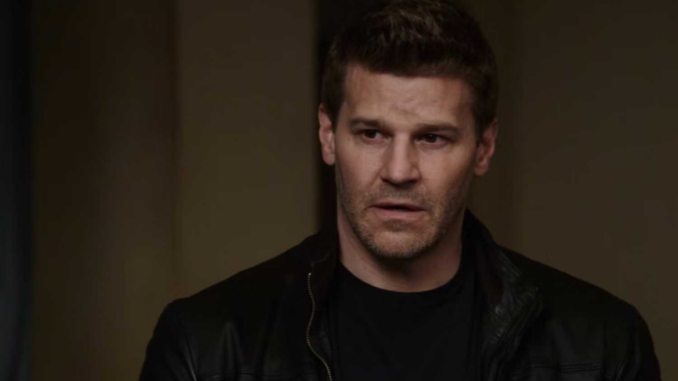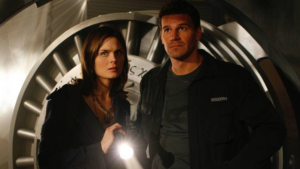
SEAL Team Finale: A Near-Recast & Military Drama’s 7-Season Journey
After seven seasons of action, drama, and emotional roller coasters, SEAL Team has come to an end, leaving fans with bittersweet memories. The military drama, centered around the elite Bravo Team of Navy SEALs, captivated audiences with its gritty portrayal of both the physical and mental challenges faced by service members. But, did you know that the show almost had a major change that could have altered the course of its story?

In this article, we’re diving into the SEAL Team finale, including the near-recast, the incredible journey of the show, and why it resonated with so many. So, what exactly happened behind the scenes, and how did SEAL Team manage to impact TV for 7 seasons? Let’s break it all down.
The Beginning of SEAL Team: A New Era in Military Dramas
When SEAL Team first aired in 2017, it quickly became a standout show on CBS. With David Boreanaz (known for his role in Bones) leading the cast as Jason Hayes, the series promised a fresh take on military dramas. Instead of focusing solely on combat action, SEAL Team blended high-octane missions with the personal struggles of the characters.
For audiences, it was a new kind of military drama that provided a deeper look into the toll that elite military service takes on both body and mind. The show’s success was immediate, and its loyal fanbase grew rapidly. But, as with any long-running show, changes were on the horizon.
The Almost Recast: What Could Have Changed SEAL Team Forever?
One of the most shocking behind-the-scenes revelations is that the cast almost went through a major reworking. In the early days of the show, there were talks of recasting one of the central characters. Though the details of the proposed change were never fully disclosed, it’s been suggested that the network considered bringing in a new face to play Jason Hayes, the show’s lead.

Imagine SEAL Team without David Boreanaz—a key component of the show’s success. It’s hard to imagine, right? Thankfully, the idea of recasting was eventually dropped, and Boreanaz remained the face of the show throughout its seven seasons. However, this near-recast is a reminder of how much uncertainty there is behind the scenes of even the most successful shows.
The Military Drama’s Success: Why Did SEAL Team Work?
SEAL Team was not just another action-packed show; it was a deeply human story about the sacrifices made by military personnel. Here’s why it struck such a chord with viewers:
Realistic Depictions of Military Life
The show didn’t just focus on the missions; it took a deep dive into the personal lives of the SEALs. Viewers saw the mental toll combat takes, the toll of PTSD, and the complicated relationships with family members. By exploring both the high-stakes world of special operations and the emotional cost of being a SEAL, SEAL Team resonated with those who had served and those who had never seen the military up close.
Strong and Diverse Characters
Another reason for SEAL Team’s success was its strong ensemble cast. Each character brought something unique to the table, from Jason Hayes‘ tough-as-nails leadership to Ray Perry‘s emotional vulnerability. These characters weren’t just soldiers; they were human beings, each with their own fears, dreams, and struggles.
Action-Packed Storylines with Heart
The action scenes in SEAL Team were intense, but they never overshadowed the emotional arcs of the characters. Whether it was a brutal firefight or a difficult personal decision, the show balanced high-octane moments with thoughtful, reflective storytelling.
The Evolution of SEAL Team: Major Changes and Key Moments
Throughout its seven-season run, SEAL Team saw significant changes. Some of these changes were inevitable as the show progressed, while others were shaped by the actors and creators.
Leadership Shifts Within Bravo Team
One of the most significant changes in SEAL Team was the evolving leadership within Bravo Team. Jason Hayes started off as the unquestioned leader, but as the seasons progressed, other members, like Ray Perry and Sonny Quinn, took on more responsibility. This shift allowed for deeper character development and gave fans a closer look at the inner workings of a military unit.
Season 5: The Departure of Key Characters
In Season 5, the show experienced a significant loss with the departure of Clay Spenser, played by Max Thieriot. Clay’s departure marked a turning point for Bravo Team, and fans had to adjust to the absence of a beloved character. This kind of loss mirrored the unpredictable nature of military life, where soldiers are often faced with sudden departures and unpredictable outcomes.
The Impact of SEAL Team on TV and Popular Culture
SEAL Team’s influence extends beyond just being a hit drama. The show changed the way military stories were portrayed on television and influenced the genre for years to come. Here are a few ways SEAL Team made its mark:
More Realistic Military Dramas
Before SEAL Team, many military dramas focused primarily on the action and glory of war. While the show didn’t shy away from intense combat sequences, it brought the emotional aftermath of war into the spotlight. This realistic portrayal of military life changed how audiences viewed soldiers and their families, providing a more nuanced perspective on the sacrifices made.
Raising Awareness for Veterans’ Issues
By focusing on issues like PTSD, family strain, and the psychological impacts of combat, SEAL Team raised awareness about the struggles faced by many veterans. The show did not just entertain; it educated and sparked conversations about important social issues.
Influence on Future Shows
SEAL Team’s success influenced many other military dramas and inspired shows that took a similar approach, blending action with deep emotional storytelling. Its legacy continues to shape the genre even after its conclusion.
The End of SEAL Team: What Went Into the Decision to End the Series?
When it was announced that SEAL Team would end after its seventh season, fans were devastated. But the decision to conclude the show wasn’t made lightly. Several factors played into the end of the series.
Declining Ratings
Like many long-running shows, SEAL Team faced challenges in maintaining its viewership. As audience preferences shifted, the show saw a drop in ratings, which played a role in the decision to end the series.
Satisfying the Story Arc
By the end of Season 7, many of the storylines had reached a natural conclusion. The writers and producers wanted to ensure that the characters’ journeys felt complete, and the ending of the show allowed for a satisfying resolution.
What’s Next for SEAL Team Fans?
While SEAL Team may be over, the franchise isn’t necessarily finished. Here’s what fans can look forward to:
Spin-Offs
There are always rumors about spin-offs, and with the success of SEAL Team, it’s possible that we could see a new show based on the franchise. Whether it’s focusing on new characters or exploring other aspects of military life, there’s potential for new content in the SEAL Team universe.
Rewatching the Legacy
For those who can’t get enough of SEAL Team, the entire series is available for streaming. This gives fans the chance to revisit their favorite moments and relive the action all over again.
Conclusion
The SEAL Team finale marked the end of an era, but it also sealed the show’s legacy as one of the most impactful military dramas of the modern TV era. With its emotional storytelling, realistic portrayals of military life, and unforgettable characters, SEAL Team will continue to hold a special place in the hearts of its fans.
Though the show won’t return for another season, its influence on television and popular culture is undeniable. As we say goodbye to Bravo Team, we can rest assured that their story will remain a timeless one, shaping the future of military dramas for years to come.
FAQs
1. Will SEAL Team get a spin-off? While nothing is confirmed, there are ongoing discussions about possible spin-offs based on the success and popularity of the show.
2. Why was SEAL Team canceled after Season 7? The cancellation was primarily due to declining viewership and a desire to provide a satisfying conclusion to the characters’ journeys.
3. Who is the most beloved character in SEAL Team? Fans seem to gravitate toward Jason Hayes (played by David Boreanaz), who was the heart and soul of the show throughout its run.